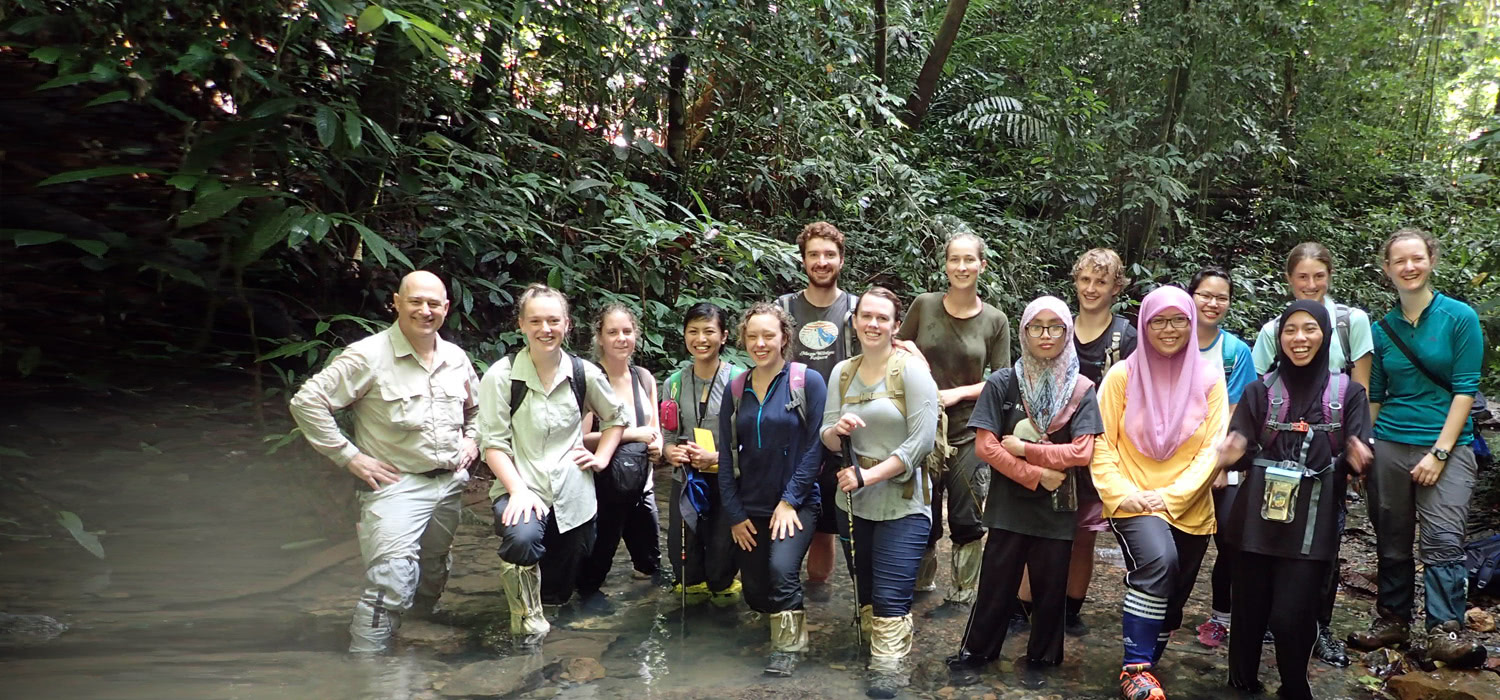
Welcome to the jungle
A new ecology course has transported Otago students thousands of kilometres to the middle of a tropical rainforest on the South-East Asian island of Borneo.
The prospect of spending nights studying frogs in a Borneo rainforest while wondering whether the nearest snake is venomous might be scary for some, but 10 Otago students found their three-week trip earlier this year positively exciting.
The new tropical ecology field course for third-year students majoring in ecology is designed to give them experience of tropical ecological research.
Professor Phil Bishop (Department of Zoology) explains that he scouted for a safe, suitable site for such a trip for several years until he visited the University of Brunei Darussalam and its jungle field study centre.
“The jungle there is pristine,” Bishop enthuses. “It has been a jungle for 100 million years; it has never been logged and I saw it as a fantastic opportunity.”
Bishop and fellow Zoology staff member Associate Professor Christoph Matthaei went on the trip with the students. “We had more students who applied to take the course, but we had to limit it to 10,” Bishop explains. The students contributed towards the costs, the major one being air fares.
The journey from university to jungle field study centre involved a ride in a “pretty dodgy” old speedboat through crocodile-infested mangrove swamps and across the open sea, a van ride and a longboat trip up a narrow, winding river.
The students were based at the field study centre during their three-week intensive course of lectures by day, and research by day and night.
They carried out a major study on the population of frogs that occur in the jungle streams, the researchers hiking through the jungle by torchlight at night to plot the number of frogs.
“We essentially repeated a study that was conducted by other researchers in 2006,” Bishop, a specialist herpetologist, explains.
“Amphibians are declining throughout the world and it certainly seems that the frogs are declining in this pristine rainforest as well, even though there is no human impact, no disease, no effects of climate change. We got some really good results and we will probably end up publishing them.”
Each student also took on their own research project, from frog communication to horsehair fungi.
The students describe the three-week experience as “incredible”, “awesome”, “amazing”.
“There is just so much diversity in there, everywhere you look,” Nina Batucan says. “Things that we had never seen before.”
Fellow student Max Harvey says that studying tropical ecology in a rainforest is so much better than in a lecture theatre. “Just being in the field with two professors who can tell you about everything as you are there, rather than having to read about it in a textbook and imagine it in your head.”
“The theory we had learned over the previous two years really came to light when we went there and saw the forest and got to apply what we had learned,” fellow student Lisa Danuser adds.
The two Otago staff members and 10 students were joined by a staff member and four students from the University of Brunei Darussalam.
“It was a multi-cultural experience,” Bishop says. “Our students got to know and work with local Brunei students who are Muslim and have a very different culture.”
Bishop says that this is the first time Otago students have experienced learning in a tropical rainforest and, with the success of this first course, he is hopeful it will be repeated each year.
IAN DOUGHERTYBanner: Professor Phil Bishop (left) and 10 University of Otago ecology students joined local students at the University of Brunei Darussalam jungle field study centre in Borneo.
